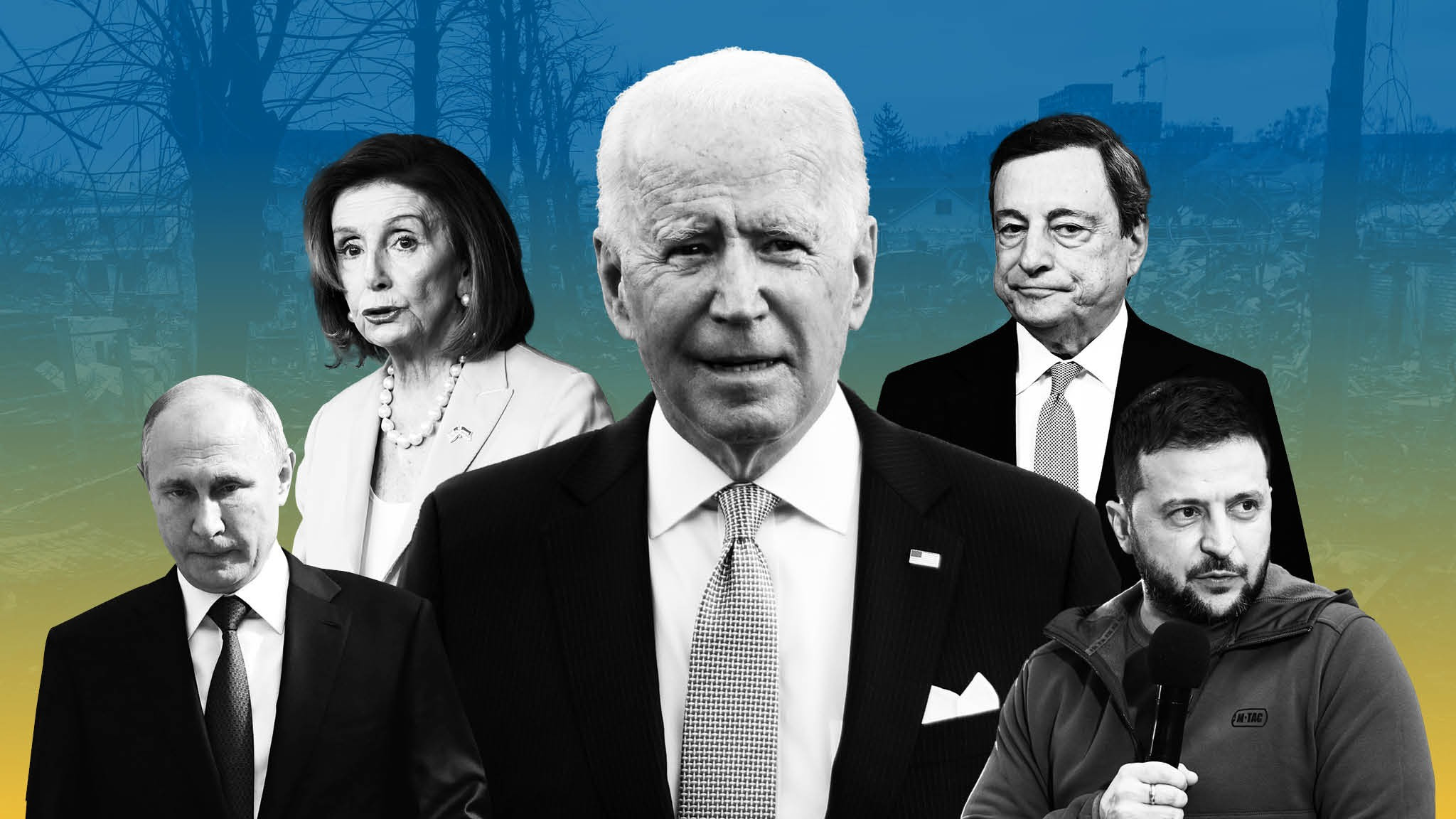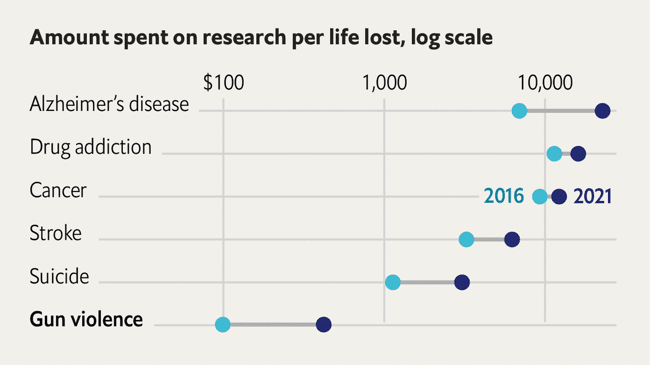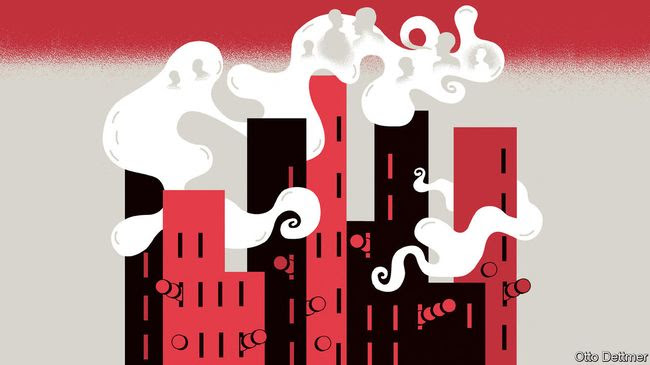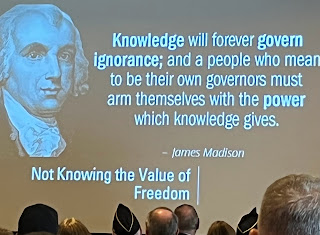 |
Global EconomyChina fails to work out a plan to ease its economic malaiseCovid lockdowns strangle growth but there seems little officials can do to surmount the challenges MAY 29, 2022 by Tom Mitchell in Singapore, Sun Yu in Beijing and Cheng Leng in Hong Kong
|
|
|
|
|
|
|
|
|
Will Biden Run in 2024?
Spoiler: There is no alternative.
1. Plan B
I’ve been saying since November 2020 that, barring a health event, Biden will run for re-election in 2024 for one simple reason: There is no other option.
The Democratic coalition is currently made up of a giant mass of factions, some of which are in tension. They cannot win the presidency without getting close to 52 percent of the popular vote and even that margin gives them only about a 50-50 shot of winning the Electoral College.
Democrats need to hold together (and turn out) progressives, African Americans, young voters, women, Hispanics, and college-educated suburban voters. They need to do this without losing even more ground to white, high-school-educated men.
Joe Biden is the only Democrat even theoretically capable of shouldering this burden.¹
Are there negatives to another Biden run? Yes! He is very old! He is quite unpopular!
But on the other hand: He has a fairly successful legislative agenda to run on. He did return American political life to something like normal. His administration has been scandal-free. He is completely and totally vetted. He will campaign with all the benefits of an incumbent president. He starts with 81.2 million Americans who have already voted for him. His weaknesses—age and unpopularity—also apply to his likely challenger, Donald Trump.
All of which is to say that—again, barring a health event—I still think that it’s about a 95 percent likelihood that Biden is the Democratic nominee.
But there is that skinny 5 percent and health events do happen. So what’s Plan B?
That’s what Gabriel Debenedetti asks in this big New York magazine piece.
Debenedetti’s reporting focuses on Democratic governors: Rory Cooper from North Carolina, Jared Polis from Colorado, Gavin Newsom from California.
That’s because, as Debenedetti explains, the entire sense of instability is a byproduct of Kamala Harris’s failure as vice president.
Now maybe this isn’t fair to Harris. Maybe she’s been set up to fail. Maybe she hasn’t gotten a fair shake. I’m not judging. But just as an objective political matter, it’s clear that she’s a dead end. She is unpopular; she has no independent base of support. As a political commodity, she is less the smooth operator she was as a senator and more the flat-footed bumbler she was as a presidential candidate. She has failed to launch.
But she hasn’t failed so spectacularly that she couldn’t win an open primary in 2024:
[I]f Biden did step aside, Harris would start the succession contest as the clear front-runner. A Politico newsletter recently pointed out that 27 surveys have tested the prospect of a Biden-free primary in the past year, and Harris has led 21 of them. (The remaining six were led by Michelle Obama, who is perhaps less likely to run than her constitutionally ineligible husband.) Underwater or not at the national level, Harris’s popularity among Black voters in particular may make her impossible to beat in a primary. . .
Most think Harris would win the nomination if Biden backed her, and no one thinks he would ever actively endorse anyone else. But to her doubters, that itself is reason to think that “Biden has to run again, because he desperately has to keep Trump out of the White House and defend our democracy,” as one Capitol Hill supporter puts it. “And I have no doubts Kamala Harris can’t win.”
And this has created a problem because part of the Biden pitch was that he would be a transitional figure. Here’s Debenedetti:
“Look, I view myself as a bridge,” Biden said that day. “Not as anything else.” He was onstage in Detroit, on an exhilarating high, less than a week after a shock Super Tuesday romp that supercharged his once-flagging primary campaign and made it almost impossible for Sanders to catch up. One by one, younger competitors had dropped out and endorsed him, consolidating his power and momentum. Biden had appeared triumphantly with Pete Buttigieg, Amy Klobuchar, and Beto O’Rourke in Dallas; now he was in Michigan with Harris, Whitmer, and Cory Booker. A strange new virus was days away from effectively shutting down the nominating contest. As Biden made his closing argument, more attention was focused solely on him than at any point since he left the vice-presidency. Gesturing at Harris, Whitmer, and Booker, he said, “There’s an entire generation of leaders you saw stand behind me. They are the future of this country.” Biden didn’t intend his remarks to be a one-term pledge, but the notion had been in the air; . . . this appearance in Detroit was replayed frequently and promoted enough in the ensuing months to become a symbol of Biden’s promise to defeat Trumpism and then let the country move on, ushering in a new era of leadership.
He did get Trump out of D.C. and away from the nuclear football. But after the immediate crisis slunk away to Palm Beach, Biden’s presidency passed from early success into torpor. . . . It became clear that Biden’s bridge, to consider his analogy on its terms, wasn’t built to completion at the far side. For liberal and progressive voters, the cognitive dissonance has been significant. It is possible for Democrats to feel profound gratitude to Biden for vanquishing Trump and even to love some of his work as president (Ukraine, vaccines, Ketanji Brown Jackson) and at the same time to retain an intense feeling of unease about a visibly aging 79-year-old whose Republican opponents are only growing more extremist.
You hear a lot of complaining about how the Democrats have no bench, but this isn’t really true. Mayor Pete, Cory Booker, Polis, Cooper, Stacey Abrams—JOHN FETTERMAN—are all interesting and formidable commodities. The problem is that they are mismatched with the moment. The ones who could be ready for 2024 don’t match up well with Trump. The ones who match up well with Trump might not be ready in 2024.
Which leaves us back at the start: Biden will run because he has to. For 2024, against Donald Trump, there is no workable alternative.
|
|
|
|
|
|
|
|
|
|
 |
Global Economy
Viktor Orbán refuses to discuss Russia oil embargo at EU summit
Letter from Hungary’s premier demands more detail from Brussels on alternative sources of fuel MAY 24, 2022 by Sam Fleming and Andy Bounds in Brussels and Marton Dunai in Budapest |
 |
Politics
What is America’s end-game for the war in Ukraine?
The US is trying to provide effective military support to Kyiv while keeping the support of allies worried about a long conflict MAY 29, 2022 by Felicia Schwartz in Washington |
Has Ukraine Broken the Russian Military?
By Tara Copp
There’s no way to verify that 29,600 Russian troops have died in the invasion, as Ukraine’s defense ministry claimed on Thursday, but what is known is that Russia is calling for more volunteers and raising the upper age limit of enlistees.
Read more »The first flight of the B-21 bomber has been delayed until next year; however, the public might get to view the yet-to-be seen aircraft this year. Aviation Week first reported the slip in schedule. This week, B-21 maker Northrop Grumman said the first stealth bomber finished a key ground test. "In early May, Northrop Grumman successfully completed the first—and most critical—loads calibration test of the first B-21 aircraft," the company said. "The recent test is one of three major conditions the aircraft will undergo in this phase of ground testing as it progresses toward first flight."
The National Reconnaissance Office this week awarded BlackSky, Maxar, and Planet the "largest ever" commercial imagery contacts, which are "valued at billions of dollars over the next decade." The Maxar contract is worth $3.2 billion and BlackSky $1 billion over the decade, according to Space News. Terms of the Planet deal were not disclosed. "[T]hese contracts mark a historic expansion of the NRO's acquisition of commercial imagery to meet increasing customer demands with greater capacity than ever before," the agency said.
May 26, 2022 – While millions of Iranians are struggling to make ends meet, the Iranian government has shut down the country’s oldest and largest independent non-governmental organization (NGO) focused on poverty alleviation, the Imam Ali Popular Student Relief Society (IAPSRS). “The Iranian authorities are so threatened by any independent individuals and organizations that they sever lifelines for the Iranian people even when they are needed most,” said Hadi Ghaemi, executive director of the Center for Human Rights in Iran (CHRI). An appeals court’s decision to uphold a preliminary ruling issued last year to dissolve the NGO, commonly referred to as the Imam Ali Society, comes at a time when the Iranian people face debilitating inflation and growing poverty. The government in Iran has meanwhile been violently repressing protests that erupted earlier this month over skyrocketing food prices. Scores of activists and protesters have been arrested under the administration of President Ebrahim Raisi and protesters have been killed by security forces. “Iranian society is facing intensifying state suppression that is aimed at eliminating grassroots, civil society activists and organizations through all means—from killing defenseless protesters to handcuffing individuals who are trying to alleviate hunger,” said Ghaemi. Court Ordered NGO to Pay for “Study” That Was Never Carried Out The preliminary court order to dissolve the IAPSRS was issued in March 2021 upon request by the Interior Ministry, which was then operating under President Hassan Rouhani, and was followed by the detention of several of the organization’s senior staff. Branch 28 of the Appeals Court in Tehran province upheld the ruling, the IAPSRS announced in a statement on May 23, 2022. “The case judge decided to refer the matter to a panel of experts and the IAPSRS paid 15 million tomans (497 USD, free market rate) in fees to conduct a study about its activities,” the statement. “However, the study was not implemented, and no report was presented by the expert panel. Also, the indictment contains unproven opinions and accusations,” the statement said. Established in 2009, the Imam Ali Society is the only NGO in Iran with UN advisory status and is a member of the UN’s Economic and Social Council. It is devoted to providing services and support to impoverished families and children. It was shuttered through an unprecedented and unlawful judicial process, with the state’s security-intelligence establishment arresting the organization’s staff under manufactured accusations that were never proven. Reacting to the Appeals Court ruling, Iranian human rights lawyer Saeid Dehghan noted that the direct intervention of the Supreme Leader’s Office, the Intelligence Ministry, and the Islamic Revolutionary Guard Corps’ (IRGC) Intelligence Organization in this civil matter was unprecedented. “In the past, it was the Revolutionary Court that would issue revolutionary decisions in such cases,” he tweeted.
|
The U.S. State Department has cleared three major arms deals this week that could collectively be worth more than $3.1 billion. A $2.6 billion deal for Egypt to buy up to 23 Boeing-made CH-47F Chinook helicopters makes up the lion's share of the deals. State also approved a $385 million deal for Australia to buy 20 M142 High Mobility Artillery Rocket Systems and 30 M30A2 Guided Multiple Launch Rocket Systems. Lastly, State OKed a $117 million deal for The Netherlands to buy 115 AIM-9X Block II missiles.
































